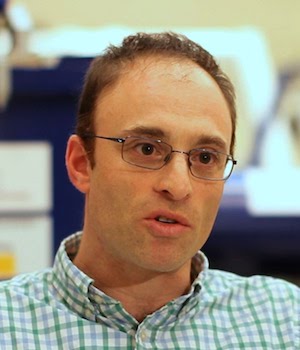Biography
Shep Doeleman received his B.A. from Reed College in 1986, and soon after spent a year in Antarctica, where he conducted multiple space-science experiments at McMurdo Station on the Ross Ice Shelf. With an appreciation for the challenges and rewards of instrumental work in difficult circumstances, he returned to complete a Ph.D. in astrophysics at MIT. He continued his work in astronomy at the Max Planck Institute for Radio Astronomy in Bonn through a Deutscher Akademischer Austausch Dienst (DAAD) award, and came back to MIT in 1995 for a postdoctoral fellowship. He is now a principal research scientist at MIT and assistant director of the MIT Haystack Observatory.
Doeleman’s interests focus on problems in astrophysics that require ultra-high resolving power—the ability to observe fine details of cosmic objects. His research employs the technique of Very Long Baseline Interferometry (VLBI), in which widely separated radio dishes are combined to form an Earth-sized virtual telescope. He has used this technique to study the atmospheres of dying stars, as well as stars that are just being born. His group at MIT has pioneered development of instrumentation that enables VLBI to achieve the greatest resolving power possible from the surface of the Earth. He recently staged a global experiment using these new systems that successfully measured the size of the supermassive black hole at the center of the Milky Way Galaxy. He now leads an international collaborative project called the Event Horizon Telescope (EHT) whose goal is to image the event horizon of a black hole, the boundary where gravity is so strong that even light cannot escape. This project addresses several fundamental questions about the universe: Do event horizons exist? Does Einstein’s theory of gravity hold near a black hole? How do black holes affect the evolution of galaxies?
Sessions as a Speaker
F2) Astronomy’s Next Big Things
- Marriott Marquis: Salons 1-3

